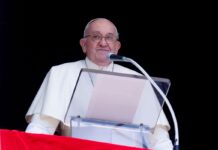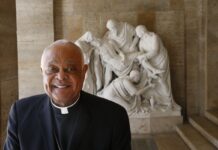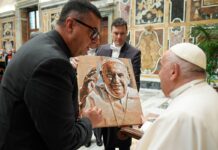That’s the view of two legal scholars on religious liberty issues as they observe what they see as an orchestrated campaign against the First Amendment right to free exercise of religion.

Helen Alvare, associate professor of law at George Mason University in Virginia, says that one of the most prominent religious liberty issues today revolves around the Obama Administration’s regulation that would force many religious organizations to pay, through their health insurance premiums, for sterilization and contraceptives, including abortion-inducing drugs, for their employees. This mandate would force the Catholic Church to violate its own teaching.
“The First Amendment protects the free exercise of religion, which includes religious institutions being allowed to operate with complete integrity,” says Alvare. That integrity includes the right to offer health benefits consistent with “their origins, their mission statements and the teaching of their Church.”
Martin Nussbaum, a Colorado Springs-based attorney who works on religious liberty cases, says that the Obama Administration’s claimed compromise — that would have insurance companies, not the church itself, pay for contraceptive coverage — is a thin fig leaf that doesn’t undo the violation of religious liberty.
“It didn’t change the substantive reality at all,” he says. For him, the administration’s position still compels religious organizations to pay for something even if they morally oppose it.
While the arguments over the health care mandate have taken center stage, Nussbaum argues that the most intrusive act the administration has taken against religious liberty so far was its stance in the Hosanna-Tabor v. EEOC case, in which a Lutheran church was accused of violating employment rights. The case touched on who decides who is a minister in the church, and the U.S. Supreme Court said the government could not make that decision since it involved an internal church matter.
The administration had argued against the “ministerial exception,” which grants churches the right to select their own teachers and ministers, though the courts have long recognized that the government has no right to interfere in that process.
“The significance of this is impossible to overstate,” says Nussbaum. “(The administration) took the view that government can supervise who your minister is. It can order you to reinstate that minister.”
However, the court, in a 9-0 vote, rejected the administration’s argument. Both Justices Antonin Scalia and Elena Kagan — former solicitor general in the Obama Administration — expressed astonishment during oral arguments at the administration’s view.
Attacks on religious liberty can spring from disparate issues, says Nussbaum. For example, he cited an Alabama law — opposed by Catholic and Protestant church leaders — that would have caused ministers and volunteers to risk imprisonment if they were found transporting and assisting undocumented immigrants.
“That would have made Good Samaritan work illegal,” says Nussbaum, noting that the state of Alabama eventually backed away from that provision in the law.
In New York City, religious groups have been banned from using vacant public school buildings on weekends for worship services, again a blatant violation of religious liberty, says Nussbaum.
While these issues percolate, the most volatile religious liberty questions remain those around disputes about the nature of sexuality.
With the U.S. Department of Health and Human Services mandate to force employers, including many Catholic institutions, to pay for services that violate their religious beliefs, opponents of the bishops use “a ‘gender equality/ human rights’” argument, says Alvare. “They hold that sexual expression is itself the good, such that the right to pursue it must be guaranteed to be free of later entanglements or complications.”
Nussbaum says those protective of religious liberty need to loudly warn off public officials who overstep their authority and, if necessary, support laws that overturn administrative regulations that infringe upon religious liberty.
In the long term, he says, education on the prime role that religious liberty has played in American life needs to be bolstered. Students, he says, are often familiar with the struggle for individual civil rights. But, he says, they are often in the dark about the rights that religious institutions are guaranteed under the Constitution.
— By Peter Feuerherd, director of communications for the Diocese of Camden, NJ.






